9 of the best upcycled planter ideas to turn unwanted items into prized pots for the garden
How to repurpose no longer needed household items in the garden without throwing them out

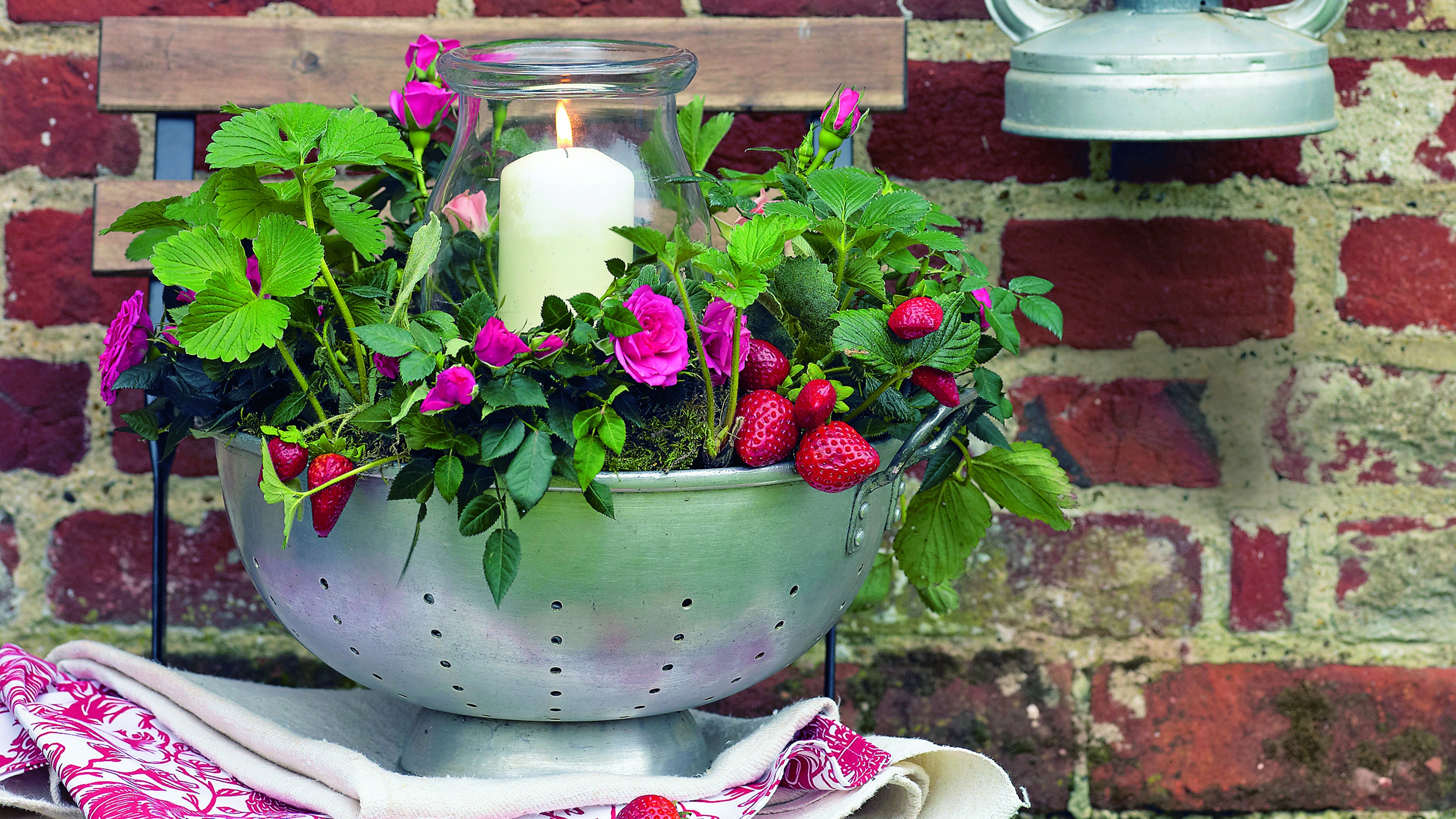
- 1. Turn a colander into a hanging planter
- 2. Use chipped teacups and teapots as planters
- 3. Reuse old boots as planters
- 4. Turn cans into rustic planters
- 5. Use old buckets as planters
- 6. Repurpose old roasting and loaf tins as planters
- 7. Cut plastic bottles into planters
- 8. Use old bread bins as planters
- 9. Turn tin foil trays and muffin tins into planters
Sign up to our newsletter for style inspiration, real homes, project and garden advice and shopping know-how
You are now subscribed
Your newsletter sign-up was successful
EDITOR’S NOTE: An earlier version of this article included a quote from a purported expert whose credentials we have not been able to verify. The quote has been removed. We regret this lapse in our verification process and have updated our internal protocols to reduce the risk of recurrence.
Just like any other hobby or work around the house, gardening too can get expensive with all the tools and materials one needs to regularly invest in. On the other hand, we regularly throw out household items that no longer serve their original purpose or are slightly damaged and tattered, but that are perfect for upcycled planter ideas for the garden.
We love an upcycling idea for the garden and turning things into planters is one of the easiest ways to get into garden upcycling. And it’s a very versatile and creative way as you just need to use your imagination to see plant pot potential in almost anything.
But to get you started, here are 9 of our favourite upcycled planter ideas as recommended by our gardening and organising experts. Perhaps it will inspire you to come up with some of your own too.
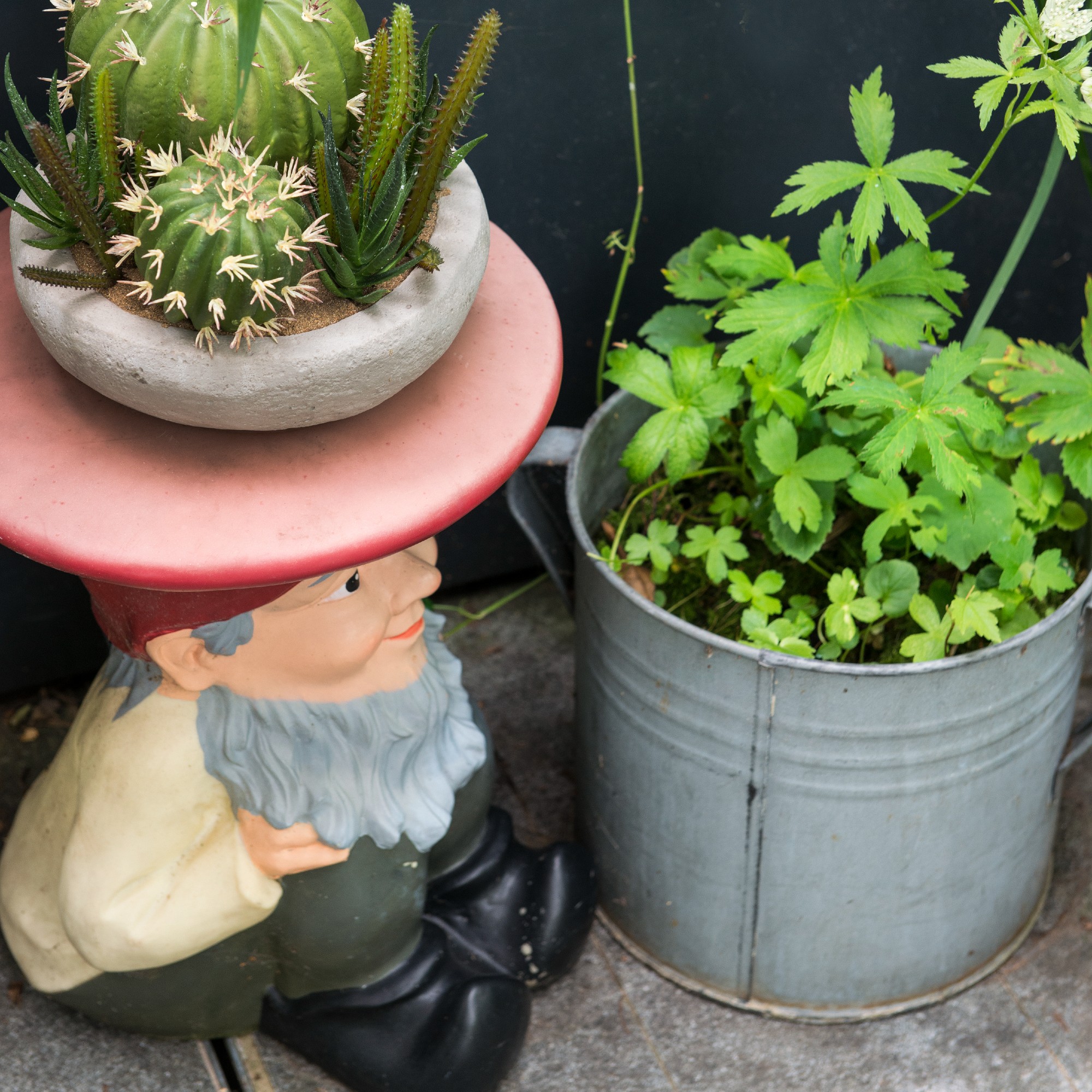
9 upcycled planter ideas for the garden
‘The garden is the place where we can experiment with our creativity,’ says Susie Smart, APDO member and founder of Smart Organising. ‘And if there is a job that needs doing, don’t rush to buy something specialist - is there something in your home that you can repurpose. The garden is a great place to reuse and recycle items from the home. Gardening can be an expensive hobby so these ideas can help bring costs down and make this enjoyable hobby accessible to us all, whether with a big plot or a small balcony.’
So turning unwanted household items into planters is not only a great upcycling idea but also the perfect budget garden idea. And this is what you can use for it.
1. Turn a colander into a hanging planter
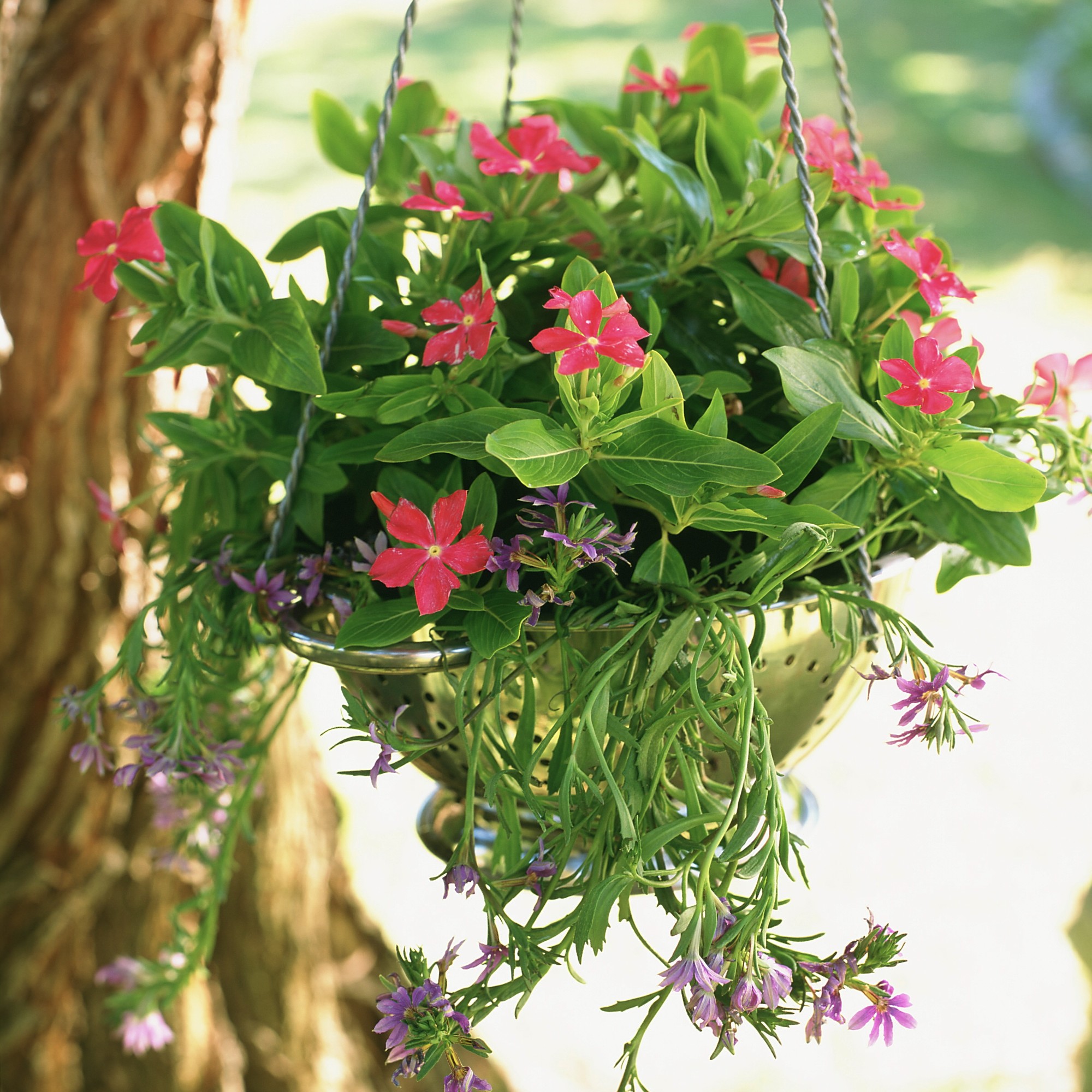
Old kitchen pots in general can be reused in the garden but colanders are by far the best as they already come with drainage holes. And they make for great hanging planters.
‘Colanders make ideal planters as they come with instant drainage holes,’ Jane Lee, APDO member and founder of Jane Lee Interiors. ‘Add a thin layer of gravel to the bottom to keep some of them clear of compost, or line with black plastic pierced with holes. The more aged and enamel ones have a lovely cottage garden feel.’
Sign up to our newsletter for style inspiration, real homes, project and garden advice and shopping know-how
‘To make a hanging basket simply space out three pieces of thin chain around the top of a colander and tie to the existing holes or push S-hooks through. Secure the chains at the top with a strong split ring. Metal hanging basket chains and hooks also come in ready-made packs.’
2. Use chipped teacups and teapots as planters
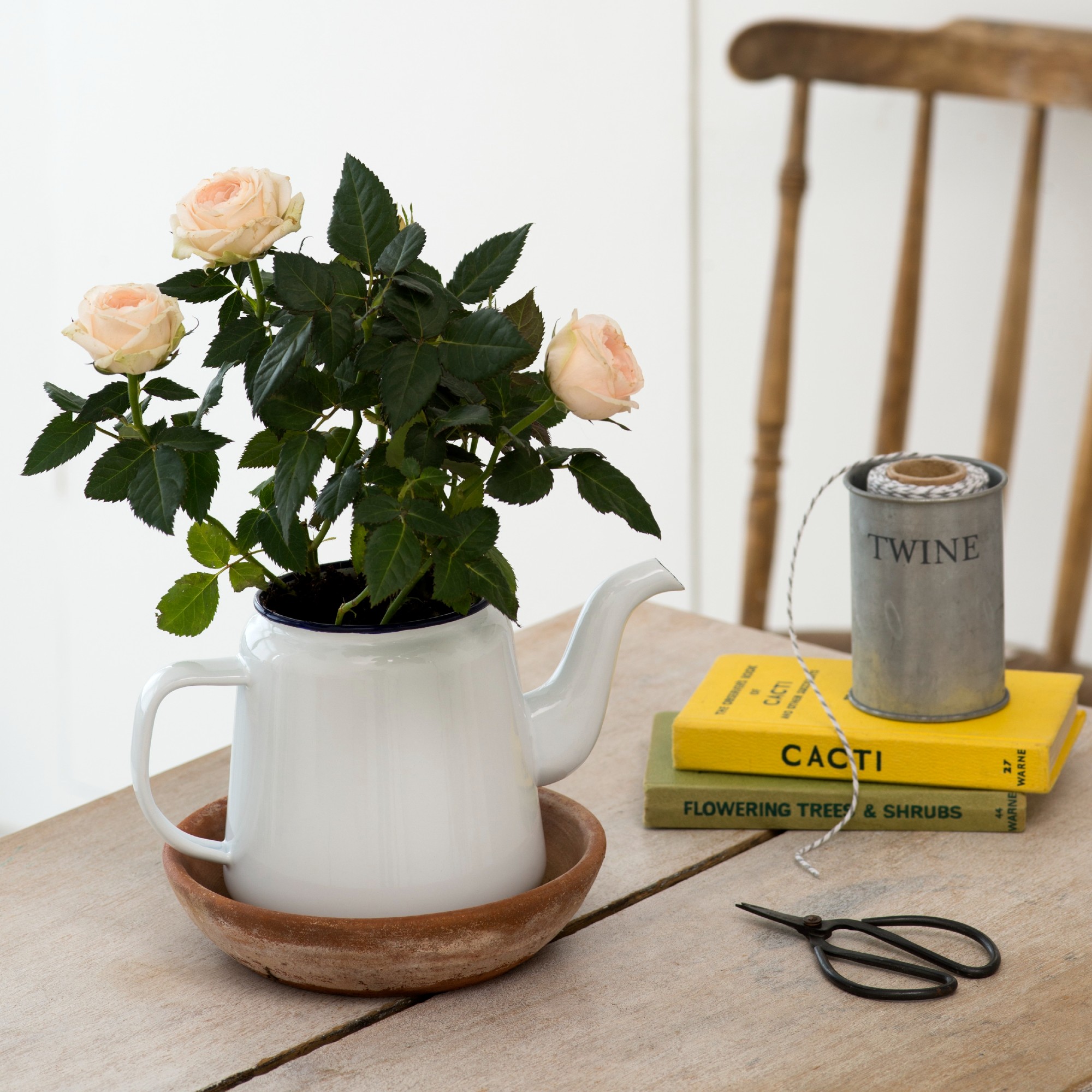
‘You'd be surprised how many things around the house can get a second life as planters,’ says Jenny Davis of Forest Garden. ‘Make sure any container you use has drainage holes to prevent waterlogging. With a little creativity, you can turn almost anything into a charming planter.’
One of the most charming planter ideas are undoubtedly teapots and teacups which create the feeling of a cottage garden.
‘Charming and unique, teapots with chipped spouts or broken lids make lovely little planters. And mismatched teacups become adorable mini planters,’ Jenny says.
While Stephanie Rough, APDO member and founder of The Organised Zone, adds, ‘Tea cups and mugs also can be used especially in small areas such as balcony or windowsill.’
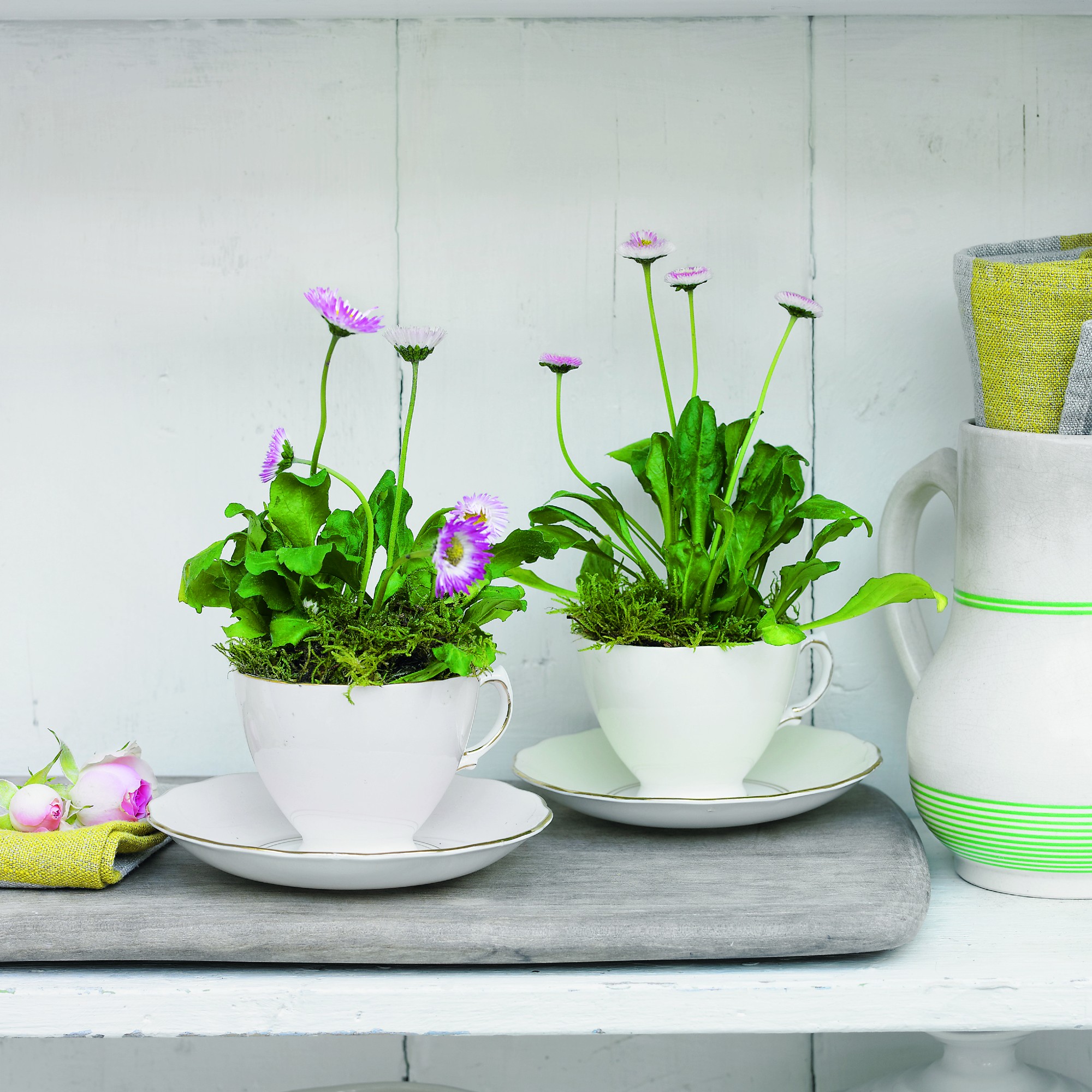
3. Reuse old boots as planters
There are several ways you can repurpose old clothes in the garden, similarly to how you can use old towels in the garden. But when it comes to shoes, boots especially, the best way is to turn them into quirky planters.
‘Old, leaky boots gain new life as quirky planters, perfect for trailing vines or herbs. Just ensure proper drainage,’ Jenny advises.
‘I couldn't bear to part with my most favourite Hunter wellies (after a spider was found using them as their home so they were unwearable) and they made beautiful planters in the garden - a lovely way to keep something sentimental,’ Stephanie shares.
4. Turn cans into rustic planters
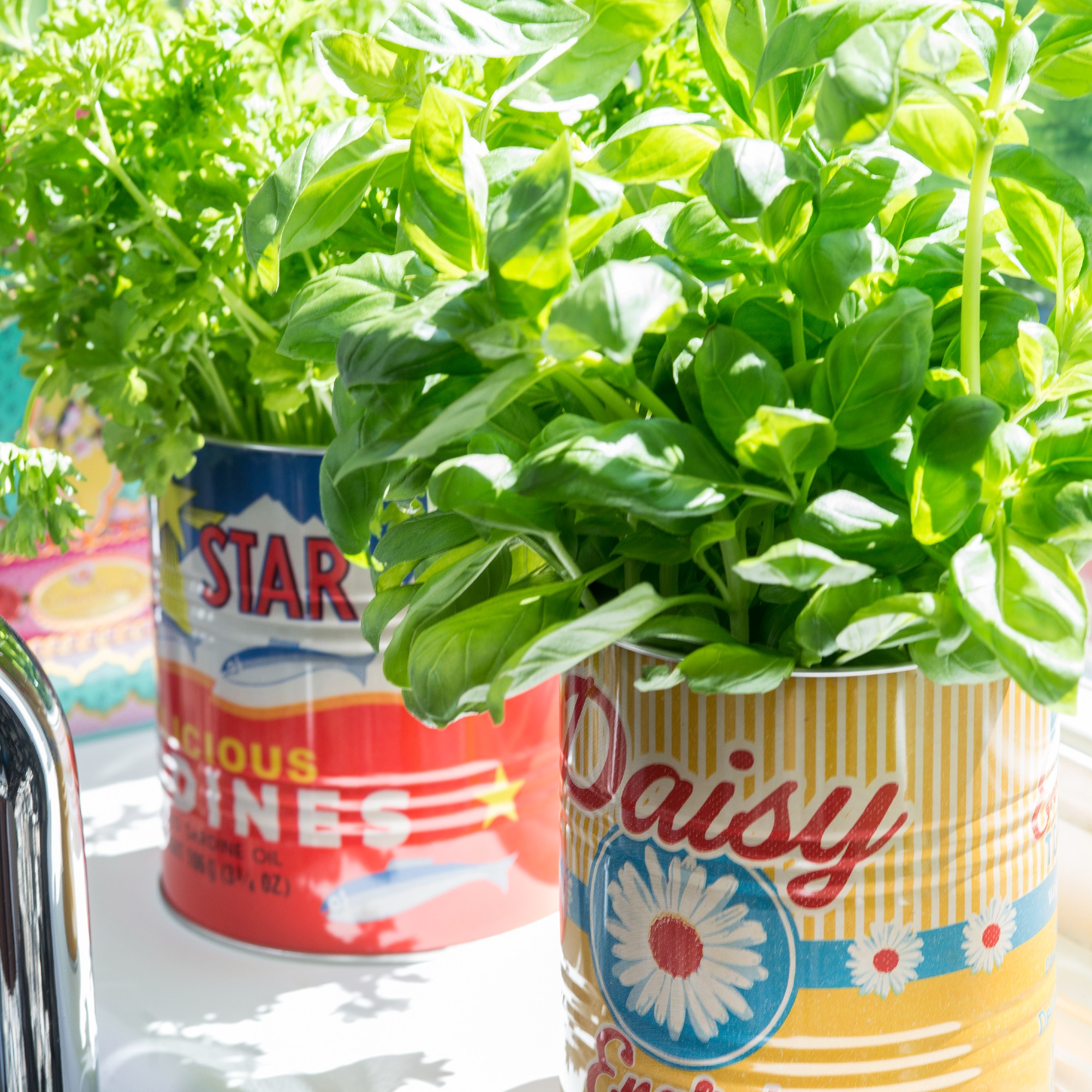
If you have any tin cans lying around the house, whether that’s from canned food or paint, then you can turn them into pots for small plants. Siân Pelleschi, founder of Sorted! and APDO president, shares how to tackle the task.
‘Remove the label and clean out an old tin can, then drill drainage holes in the bottom. Paint the can with acrylic paint, fill it with soil, and plant your seeds or seedlings.’
But if you like the rustic look or have a can with a particularly nice label, then you can just leave it as is. But making holes at the bottom is still necessary either way.
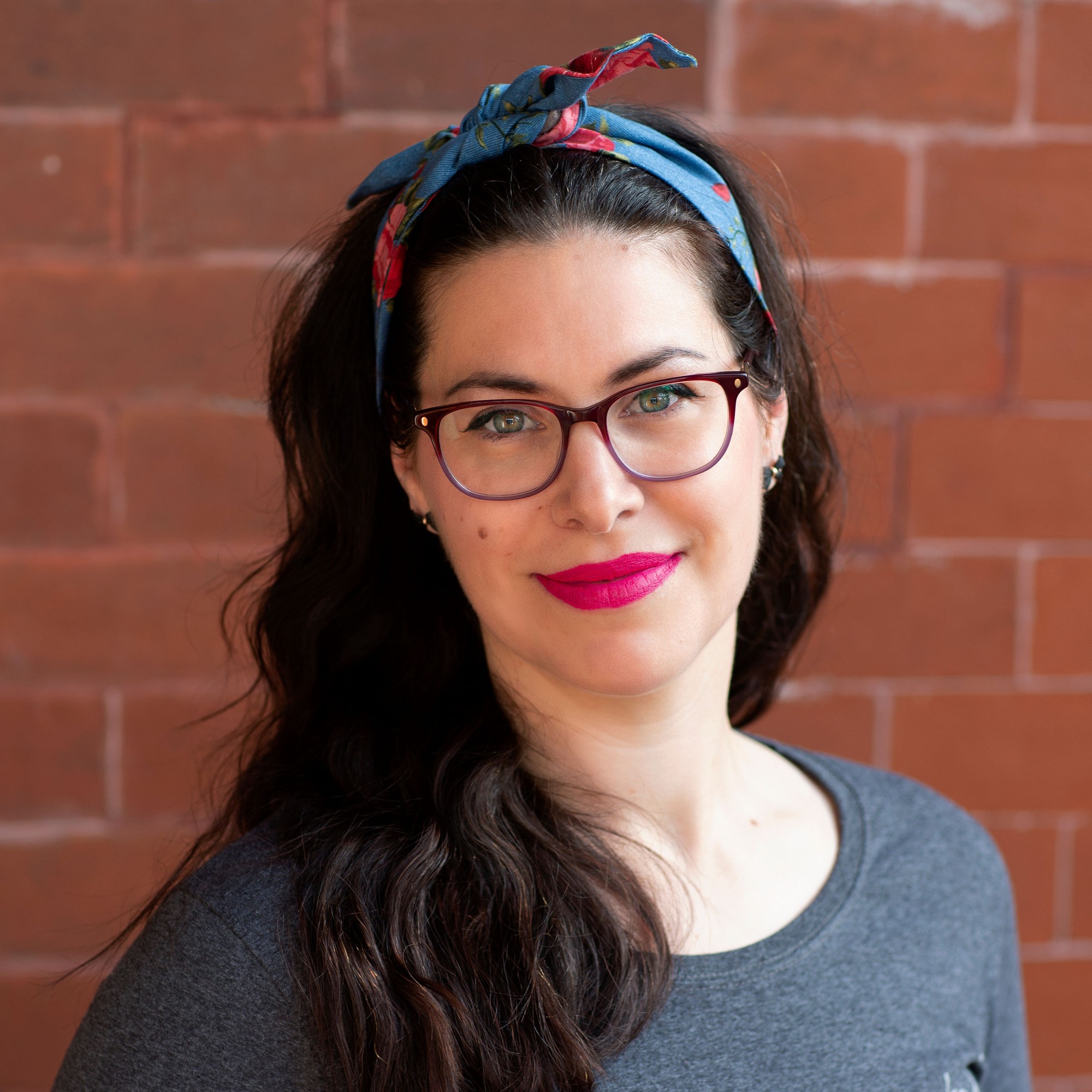
Siân Pelleschi is the owner of Sorted!, a Cheshire-based home and office decluttering and organising service, and the current President of APDO - the Association of Professional Declutterers and Organisers. With Sorted!, she aims to take away the stress and hassle that everyday life can sometimes bring, both in your home and working environment.
5. Use old buckets as planters
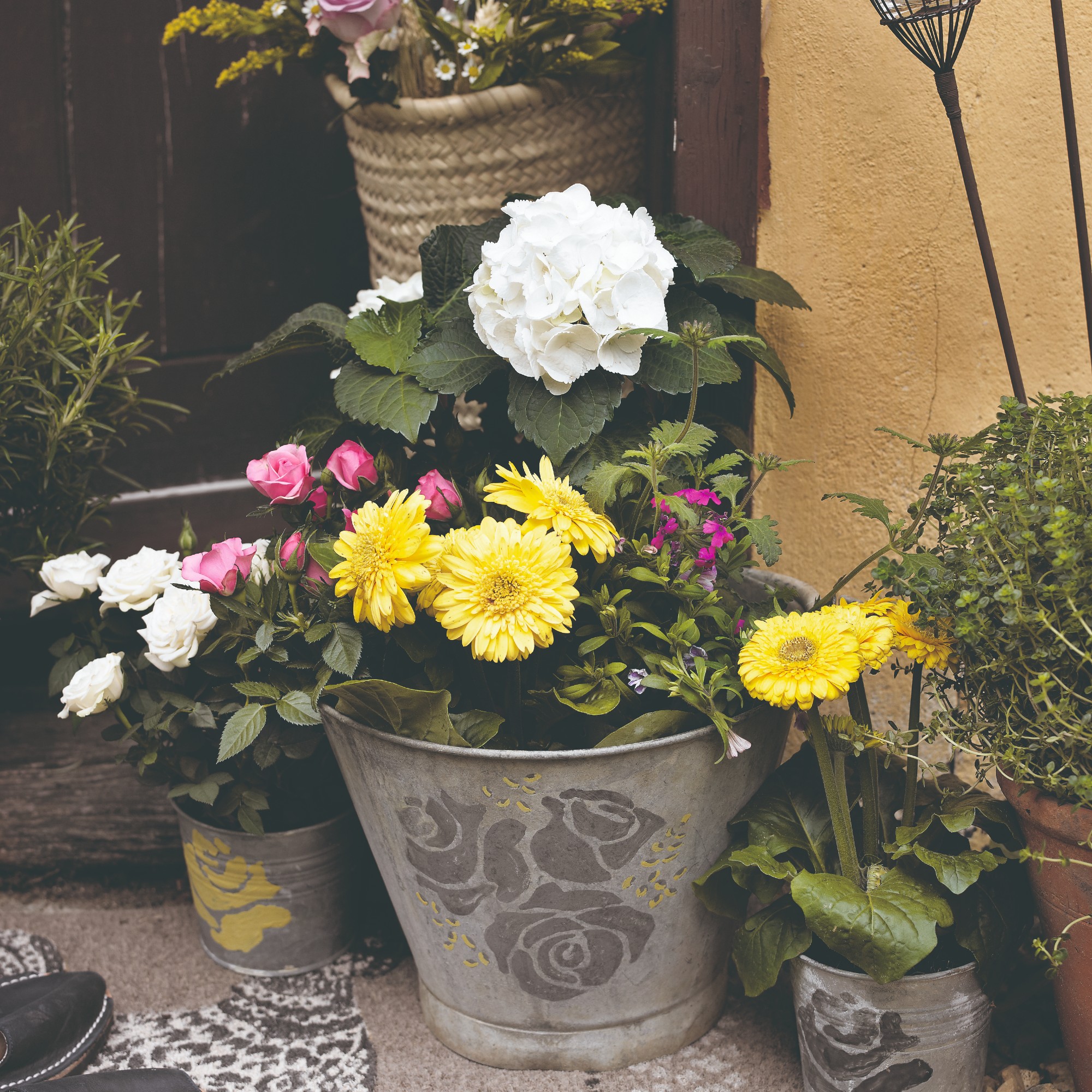
For a charming rustic look, buckets make great planters as their shape is already very plant pot-like.
‘Galvanised buckets make fantastic rustic planters. You can even decorate them for a pop of colour,’ Jenny says.
6. Repurpose old roasting and loaf tins as planters
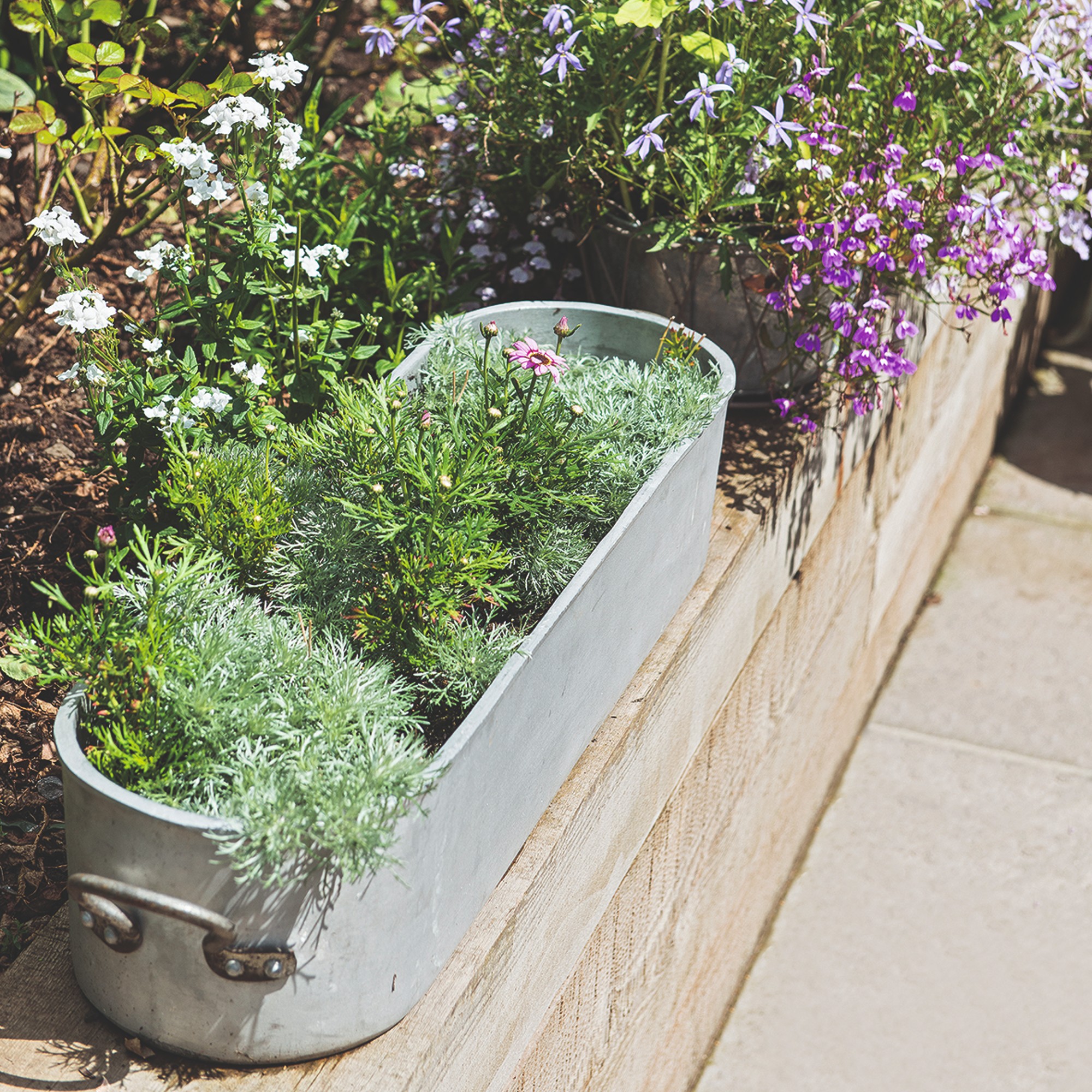
If you’re in need of a window box for your flowering plants, then a roasting or a loaf tin should be your first choice.
7. Cut plastic bottles into planters
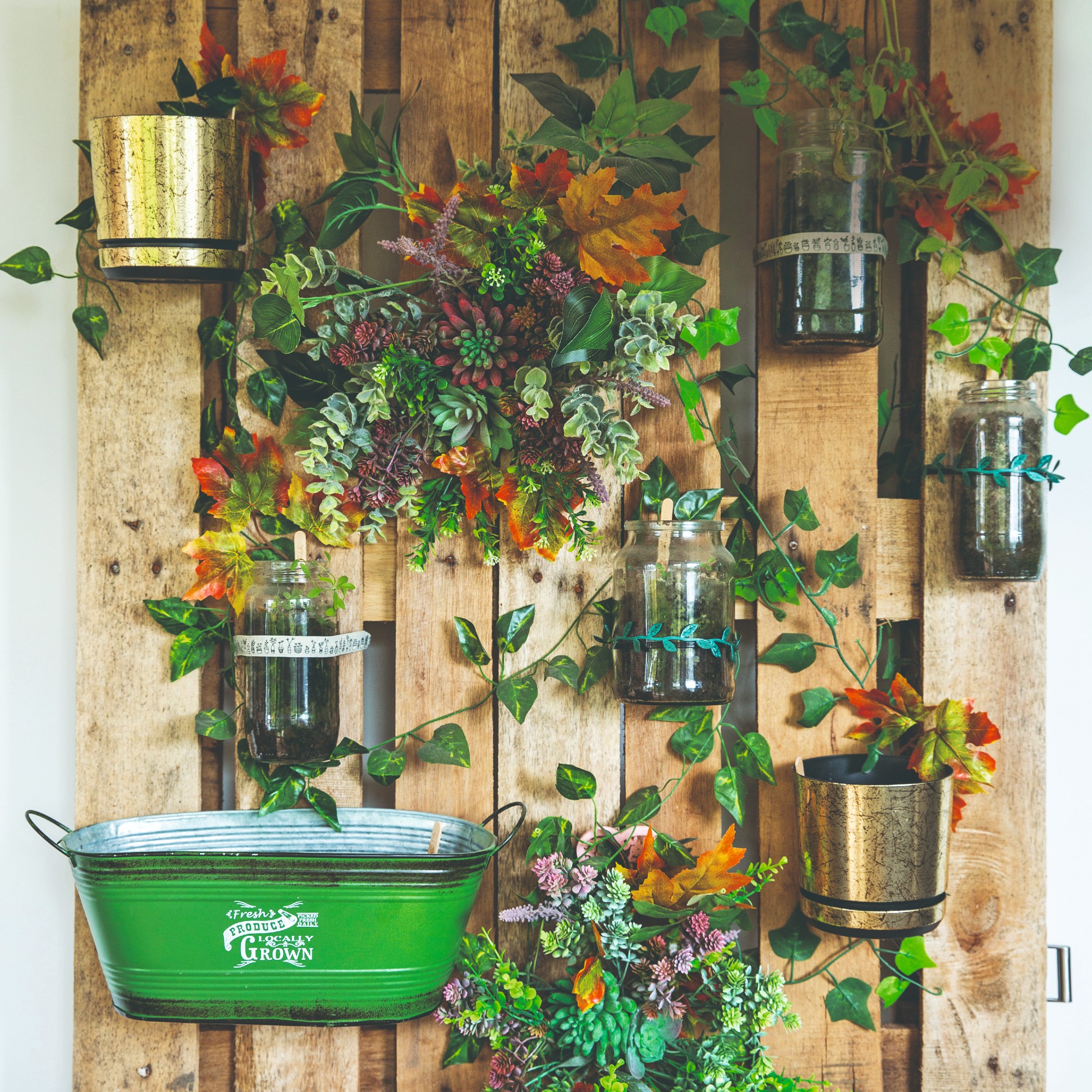
And even something that’s seen as waste can be made into seedling pots - plastic water bottles.
‘Cut the bottom third of a plastic bottle, poke a few drainage holes in the bottom, and fill it with soil. These planters are perfect for small herbs or flowers,’ Siân notes.
Or for salad crops, you can cut them vertically instead, ‘Cut two-litre bottles vertically to make a gutter shape and sow salad crops such as lettuce, that have shallow roots. Just be sure to water them regularly,’ Susie recommends.
8. Use old bread bins as planters
Instead of buying large planters, an old bread bin can be turned into one.
‘More robust containers for all year use can be made from containers such as old bread bins, especially those vintage enamel ones,’ Susie says. ‘You may need to drill drainage holes in the base if you want your plants to thrive. Or use it as the outer cover for a display of plants that are in a plastic pot.’
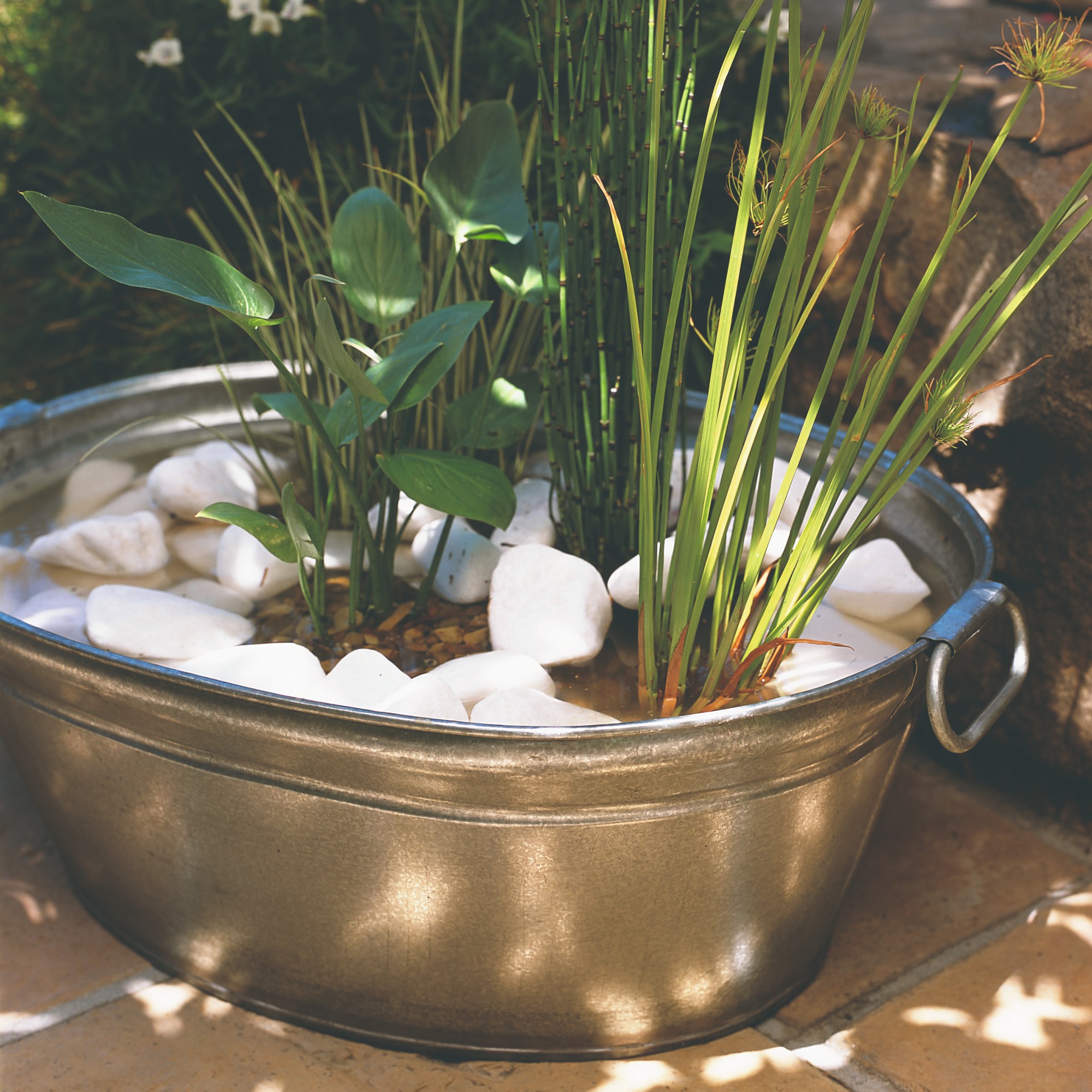
9. Turn tin foil trays and muffin tins into planters
‘A good container for seedlings, instead of using plastic pots, are unwanted silver foil food trays and muffin tins,’ Jane says. ‘Remember to pierce holes in the bottom for drainage. For a fun touch place colourful paper muffin liners inside and fill with compost to prevent the soil filling the drainage holes. Any plants that need only a little soil will grow well, including cress. Tip: a muffin tin, placed directly on freshly dug soil, creates evenly-spaced indentations for plants and seedlings.’
And the list goes on. We can’t wait to see what else people can come up with.

Sara Hesikova has been a Content Editor at Ideal Home since June 2024, starting at the title as a News Writer in July 2023. She is now also the Ideal Home Certified Expert in Training on Furniture, and so far has tested over 150 different sofas.
Graduating from London College of Fashion with a bachelor’s degree in fashion journalism in 2016, she got her start in niche fashion and lifestyle magazines like Glass and Alvar as a writer and editor before making the leap into interiors, working with the likes of 91 Magazine and copywriting for luxury bed linen brand Yves Delorme among others.